WAEC Syllabus for Igbo – The Igbo examination syllabus for WAEC 2026 has officially been released, and all candidates preparing to sit for this paper are advised to make full use of it. This syllabus is a vital tool that provides a focused guide to the topics that will be covered in the upcoming examinations, ensuring that students can concentrate on relevant areas rather than wasting time on random topics.
In addition, tutors are encouraged to align their teaching with the syllabus to offer targeted guidance that directly matches the content of the exams. For those who have not yet come across the WAEC Syllabus for Igbo, this article provides a detailed overview, including the examination scheme, specific topics to focus on, and the recommended texts.
Candidates should review the WAEC Igbo Syllabus carefully to ensure they are well-prepared for the exams.
Scheme of Examination for Igbo Language
The examination is divided into two papers, Paper 1 and Paper 2, both taken in a single sitting. The rubrics will be written in Igbo, and candidates must answer all questions using standard Igbo orthography.
Paper 1
- Duration: 1 hour
- Total Marks: 60
- Format: 60 multiple-choice questions divided into three sections:
Section A: Language (30 Questions)
- Comprehension (2 short passages) – 10 items
- Composition/Letter Writing – 4 items
- Sound System – 6 items
- Grammar – 6 items
- Translation – 4 items
Section B: Literature (22 Questions)
- Literary Appreciation – 4 items
- Oral Literature (Prose) – 3 items
- Poetry – 3 items
- Drama – 3 items
- Written Literature (Prose) – 3 items
- Poetry – 3 items
- Drama – 3 items
Section C: Culture (8 Questions)
- Customs – 4 items
- Institutions – 4 items
Paper 2
- Duration: 2 hours
- Total Marks: 100
- Format: Composition test with three sections (A, B, and C). Candidates must answer 6 questions from 13 available questions.
WAEC Syllabus For Igbo
Here is the detailed syllabus for the WAE Igbo paper:-
Section A: Essay
Part I: Composition/Letter Writing
Candidates are advised not to spend more than 45 minutes on this section.
Five topics will be provided, and candidates are expected to choose one. They should write about 300 words on the selected topic. The topics will include:
- Narrative
- Descriptive
- Argumentative
- Expository
- Dialogue
- Debate
- Letter writing
Part II: Sound System
Two questions will be set, and candidates must answer one. Topics will include:
- Igbo Phonemes: Vowels, Consonants, the Syllabic Nasal, their production and classification
- Syllable Structure
- Sound Processes: Vowel Harmony, Vowel Assimilation, Vowel Elision, and Consonant Elision
- Tone and Tone Notation
- The Igbo Alphabet
Part III: Grammar
Two questions will be set, and candidates must answer one. Topics will include:
- Spelling Rules
- Word Formation
- Igbo Dialects and Standard Igbo
- Loan Words
- Igbo Metalanguage (New Words)
- Word Classes: Noun, Verb, Pronoun, Conjunction, Preposition, etc.
- Grammatical Categories: Tense, Number, and Person
- Phrases and Clauses: Their types and functions
- Sentences: Constituents and types, Direct and Indirect Speech
- Lexis and Structure
- Punctuation Marks
Section B: Literature
Part I: Oral Literature
Three questions will be set, and candidates are required to answer one. Topics will include:
- Definition and characteristics of Oral Literature
- Classification and functions
- Literary Devices
- Folktales (ifo)
- Anecdotes (ụkabụilu)
- Legends (nkọkịrịkọ/akụkọ dike)
- Myths (nkọmịrịkọ/akụkọokike/mmalite)
- Poems (abụ)
- Songs (uri)
- Proverbs (ilu)
- Riddles (agwụgwa)
- Chants (mbem)
- Oral Drama (ejije ọnụ)
- Tongue Twisters (okwuntụhi)
Part II: Written Literature
- Three questions will be set, and candidates are required to answer one.
Section C: Culture
Customs – Omenala
- Njirimara ndị Igbo: Asụsụ, Ejiji, Omenala, Ekpemekpe, Agbambọ, etc.
- Ekele ndị Igbo n’oge dị iche iche
- Mmemme: Ọjị, Ịtụ Nzụ, Ịkwọ Aka Ụtụtụ, Ịgọ Ọfọ, etc.
- Nnabata Ọbịa
- Ọmụmụ Nwa: Ile Omụgwọ, Ibi Ugwu, Ikupụta Nwa, Ịgụ Aha, Ịzụ Ahịa Nwa, Ihu Eze, etc.
- Nkwenye: Ịlọ Ụwa, Ọgbanje, Nrọ, Ihi/Isi Anụ, Ịha/Ịchụ Mmiri, etc.
- Emume: Ọfala, Ịbọ Ụzọ, Ịwa Ji/Iri Ji, Ịgbu Ewuukwu, Iru Mgbede, Ịwa Akwa, Akwamozu, Ịgba Mkpe, Ịgụ Afọ, Mbarị, Ụdara, etc.
- Egwuregwu: Egwu Ụmụaka, Ịgba/Ịchụ Oro, Ịtụ Okwe, Ịzụ Nchọrọkọtọ, Ịkpọ Okwe, Mgba, Ịkpọ Ọga, Okoso, Egwu Ọnwa, etc.
Institutions – Ewumewu
- Ewumewu Ọchịchị: Ezinaụlọ, Ndị Eze Ụdịnala, Nze na Ụzọ, Ụmụọkpụ/Ụmụada, Otu Ọgbọ, Otu Nzuzo, Otu Inyomdi, Ụmụnna, Ogbe, Obodo
- Ewumewu Mmekọrịta Mmadụ na Ibe Ya: Alụmalụ, Ezinaụlọ, Ịgọ Ọgọ, Nwanwa/Nwadiala, Ịgba Ndụ, Ịgba Orikọ
- Echichi: Lọọlọ, Iyọm, Ọmụ, Ezeji, Jioke, Atama
- Abamaba: Mmọnwụ, Ọkọnkọ, Ekpe, Ọmabe, Odo, Dibịa
- Ewumewu Akụnaụba: Ike Ekpe, Iri Ekpe, Ala na Ihe Dị na Ya
- Akaọrụ: Ịkpụ Ụzụ, Ịgba Nta, Ịkụ Azụ, Ọrụgbo, Ịkwa Nka, Ịkpụ Ite, etc.
- Ewumewu Ofufe: Ịgba Afa, Ịchụ Aja, etc.
- Ngwa Ofufe: Ọfọ, Ikenga, Okpesi, Ogu, Ọtọnsi, etc.
- Ihe Ofufe: Ndịichie, Arụsị, Ikenga, Ala, Mmụọ Mmiri, Arụsị/Agbaradịka Ogwugwu, Ahịajiọkụ, Agwụ, Amadịọha, Kamalụ, Agbala, Ibini Ụkpabị, Ojukwu, Igwekaala, Idemmili, etc.
Recommended Texts for WASSCE Igbo
| Literature Type | Title | Author |
|---|---|---|
| Written Literature | Juo Obinna | Tony Ubesie |
| Otu Mkpisi Aka | JC Maduekwe | |
| Akonuche | Inno Uzoma Nwadike | |
| Abu Ndi AHoputara (Selected Poems) | Various Authors | |
| Ochịchị | ||
| Onye Ndu | ||
| Nne Oma | ||
| Oke Ochichọ | ||
| Asila M Na O Dị Mma | ||
| The Uwa | ||
| Jiri Nwayoo | ||
| Eziokwu | ||
| Mma | ||
| Nwaanyi | ||
| Aja Ala | ||
| Aal Igbo | ||
| Ndụ MNuwa A | ||
| Oji | ||
| Uwa Emebighi | ||
| Amamihe | ||
| Ndu Nwaanyi | ||
| Nna MOgoenyi | ||
| Uloakwukwo | ||
| Akwa Nnabuenyi Ugonna Bere | ||
| Oral Literature | Mbe Agaba | F. O. F. Onwudufor |
| Abụ Agurunony Ndi Igbo | G. I. Nwaozuzu | |
| Abu Ndi A Hoputara (Selected Poems) | Various Authors |
Did you find this post helpful? Please share with other candidates. If you have questions, please share them in the comments, and we will respond shortly.
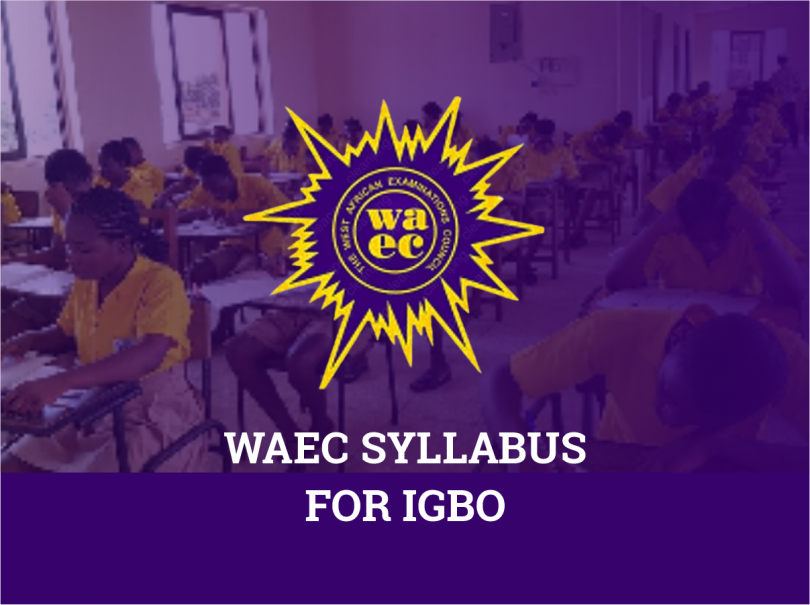
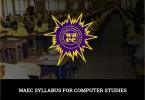

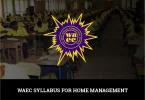
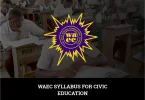
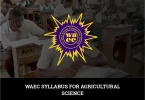
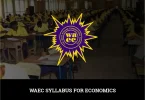
Leave a Comment